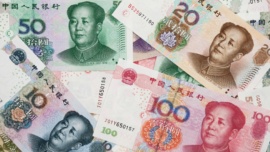The SAR has potential to be the frontrunner for online gaming regulation in China, a gaming consultant based in Asia told Business Daily. Albert Climent, the founder of BlueSea Consulting and an expert on both pre and post gaming regulated markets, shared his expertise on investing in the gaming sector in India and Vietnam and his view that the SAR has great potential for an online gaming sector.
With regard to the recent ban on phone betting in the citys casino by the Gaming Inspection and Co-ordination Bureau (DICJ), Climent points out the current restrictions on the growth of an i-Gaming market, but says that the liberalisation of online betting could bring long-term profits.
“I think because the territory has a very defined business model based on integrated resorts, this hasnt motivated the local government to look at online gaming regulation. However, I would advise the Macau Government to look at regulations for online gaming, since if China ever wants to regulate online gaming, it certainly should start in Macau, Climent told Business Daily.
He notes the global growth of the sector, and profitability potential, commenting that worldwide were seeing more and more jurisdictions starting to regulate i-Gaming, as nobody wants to lose the possible tax money.
India: The last gold rush
With regard to potential nearby markets and not suffering from the same characteristics as the SAR Climent considers India one of most exciting markets right now in terms of liquidity and potential, calling it the “last gold rush in the gaming sector, with an estimated US$60 billion to be tapped.
“India has a huge growing middle class, mobile penetration is going through the roof, every month sees five million new Internet users, the banking system is developing and hasnt been affected by the credit crunch, so [there are] a lot of benefits and things happening in India, Climent avers.
However, the gaming consultant states that since India is a federal country, gaming isnt a central government decision, with each state deciding how to regulate the sector to a different extent. However, due to gamings image in the country as a morally reprehensible activity, many state politicians avoid the issue in order not to lose votes.
“Some places like Goa and Daman are regulating it, mainly offline gaming, but Nagaland has currently regulated online games of skill like poker, Climent stated, as in some Indian jurisdictions gambling on skill-based activities is allowed and there are no specific laws preventing a player from betting online. In term of eSports betting, Climent cites the younger populations love for cricket as the basis for a huge and growing market for online sporting betting, both in real and virtual cricket games.
Vietnam possibly next regulated market
“The Philippines is probably the most advanced country in Asia now in term of online gaming licences, but Im hopeful Vietnam will be the next country to regulate online gaming, the expert told Business Daily.
Climent sees the country as fertile ground for gaming investment opportunities, with the Vietnamese Communist Party seeking to regulate the sector and possible sports betting taxation measures being discussed – such as special income taxes of 35 per cent for casinos and 30 per cent for online betting. However, the Vietnam Government is still planning test licences before issuing any official licences.
“However, any interested investor should start finding the right local partners now, as establishing good regional connections is crucial, Climent stated.
He considers both India and Vietnams gaming markets have special investment risks, since there might not be quick returns, with outside investors having to supply a lot of effort and money, while having a patient long term view and business approach. If these rules are respected, investors can expect considerable returns from these markets, the expert notes.























